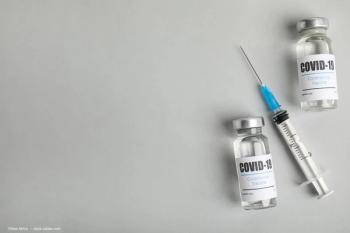
- Ophthalmology Times: August 2021
- Volume 46
- Issue 12
Editorial: Yes, ophthalmologists are real doctors
Ian Han, MD, shares his thoughts in the latest guest editorial.
“Ophthalmologists are real doctors.”
How many times have you heard this...followed by a chuckle?
Are we portrayed this way on social media by Twitter influencers and YouTubers?
Or do we laugh at memes about ophthalmologists depending on “real doctors” to do all the “real work”?
When I was a medical student, I aspired to be a trauma surgeon. In my mind, those were the ultimate doctors. They could handle anything.
Related:
After scrubbing into a heroic surgery, I remember saying in awe to the attending trauma surgeon, “That was amazing—you saved the patient’s life!”
Rather than welling up with pride, he lamented, “My mom has never been amazed by what I do...but she just had cataract surgery and thinks her ophthalmologist walks on water!”
Obviously, I went into ophthalmology instead.
Ophthalmologists are real doctors. We diagnose systemic disease. We prescribe medicines. We operate. We change lives. Patients believe that we perform miracles.
But we may not always feel like miracle workers.
Early in the pandemic, ophthalmologists were among those hardest hit.
For the safety of our patients, our clinics were reduced. Most of us lost revenue, some lost jobs.
For many, the pandemic has also been an existential challenge. What does it mean to be a real doctor? Does my work matter? Would I risk my life to do it?
One of my colleagues, an experienced cataract surgeon, found himself prohibited from operating during mandatory shut down. Like my medical school trauma attending, he questioned his life’s work.
Related:
“I always thought what I did mattered, but now I’m told that everything I do is elective.” It was hard for him not to equate “elective” with “unimportant.”
Yet in the pandemic, “ophthalmologists are real doctors” has never been more true.
Some were called to triage in the emergency room, or to do COVID screenings, or to manage ventilators in the ICU. Surely that is being a real doctor.
But so was being “just” an ophthalmologist. Until the ORs reopened, my cataract surgeon colleague volunteered to see urgent add-on patients and taught residents in the wet lab. That’s being a real doctor.
For retina specialists like me, a total shutdown was impossible.
Retinas still detached. Ocular traumas still occurred. Patients still needed their sight-saving intravitreal injections. None of this could be handled virtually.
In fact, for many patients, ophthalmologists have been the only “real” doctor they have seen throughout the pandemic.
Often, we have been the ones they trusted for information on staying safe or getting vaccinated.
Related:
And in the darkest days of loss, when social distancing has felt more like isolation, we have sometimes been the only ones close enough to counsel patients in their grief. It wasn’t walking on water, but perhaps it calmed their storms.
What a privilege to be an ophthalmologist.
My five-year-old daughter thinks I’m a real doctor. Although she hasn’t been able to attend school, she knows that I still go to work every day. She always reminds me to wear a mask before I leave, and when I come home, she insists that I shower to wash away the germs, then gives me a huge hug.
“What did you do today, Baba?” she recently asked. I proudly told her about saving people’s sight, teaching smart young doctors, and having research meetings with my friends.
“Being an eye doctor sounds fun!”
“Yes, it is, Mimi. Do you want to be a real doctor, too?”
“No...I want to be a YouTuber.”
Oh well. Sometimes we just need to see ourselves as heroes with our own eyes.
About the author
Ian C. Han, MD
E:
Han is an associate professor at the Institute for Vision Research, Department of Ophthalmology and Visual Sciences, University of Iowa, Carver College of Medicine.
--
No financial disclosures.
Articles in this issue
over 4 years ago
Early outer retinal findings on en face and cross-sectional OCTover 4 years ago
Presbyopia-correcting IOL improves vision for patientsover 4 years ago
AAV gene therapy targets autoimmune uveitisover 4 years ago
Ophthalmology Foundation focuses on mission of visionover 4 years ago
Eye contraptionsover 4 years ago
Optimizing the management of DEDover 4 years ago
Detailing consequences of Demodex blepharitisover 4 years ago
Four tips for growing a proactive practiceNewsletter
Don’t miss out—get Ophthalmology Times updates on the latest clinical advancements and expert interviews, straight to your inbox.





























